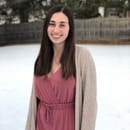New to Framingham State University this year is Dr. Marchioni. She is one of the friendliest professors I have met so far in my first semester here, and her social problems class is one of my most intriguing classes. With a doctorate in sociology, you could have her for several different classes pertaining to anthropology and sociology. I got a chance to ask her what her life was like before coming to Framingham and how it has changed since.
What were you doing before you came to Framingham State?
“I was working for the state of Alaska in the Alaska Department of Fish and Game and I was working as a cultural anthropologist where I would go out to a lot of the smaller communities in Alaska and I would do a lot of participant observation with people, so I’d get to, like, document their traditional practices, I’d go hunting and fishing with them. Everything had to do with subsistence, subsistence hunting and subsistence fishing. I would also do surveys to see if they were getting enough to eat and then I would go to the policy makers, there are boards in Alaska that manage fish and wildlife resources, and I would go to them and show them my data and we would see if what they were allowed to catch was enough to get people through the winter, so if people weren’t getting enough fish because the regulations were preventing it, or some other reason like a commercial fishery was preventing them from getting enough subsistence, I would go up and tell the policy makers and they would ideally adjust numbers so that people would be able to get enough.”
So are there people that catch fish and provide for everyone?
“Right, so in a community of maybe 80 people there might be some higher harvesters in particular. So, there might be 7 or 8 people that would do the majority of the fishing or hunting and then they might just take it for their families, but their families might be half of the community. In some communities, everybody goes out for the most part or a lot of people go out and do fishing or hunting, but so much of it is shared.”
Why did you decide to come to Massachusetts and teach?
“I’m from New Jersey, so I kind of wanted to move back towards home so I’d at least be able to see my family a little bit more often, rather than once or twice a year and, yeah, Framingham came up. I don’t know, I’ve never lived in Massachusetts, it seemed like it would be interesting.”
What is the biggest difference between living here and living in Alaska?
“The biggest difference between living here and Alaska is the traffic, so far, and the amount of people. I have not seen this many people in a while except visiting my family in New Jersey.”
What is your favorite class to teach?
“I love teaching Cultural Anthropology, I’m teaching that now. Next semester I might be teaching Environmental Sociology or Environmental Criminology.”
What other schools have you taught at?
“I taught at Clarkson University, in Upstate New York for two years and then I taught at University of Alaska for a little bit.”
Do you prefer teaching or do you prefer doing the kind of work you were doing in Alaska?
“That’s really hard. I love teaching, especially teaching about anthropology and sociology but I definitely loved what I did in Alaska, it was just, it had been several years and it’s a lot of flying in small planes and a lot of wear and tear on your body and your brain. I thought it was time to come back to teaching.”
What do you hope to be doing in ten years?
“I hope to be teaching and incorporating teaching with my fieldwork, so I hope to be teaching students how to do the work that I did because I feel its so important to a lot of the indigenous communities. I’d love to teach in the field, so be somewhere at a university where I can take students into the field for like a semester or you know a month or so in the summer and really get students to understand what anthropology is and see that there are routes that they can take with that major, or sociology as well.”


